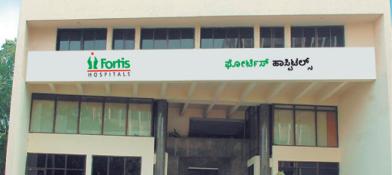Nonstress test
Overview:
A prenatal non-stress test (NST) is done to test the well-being of the fetus before labor onset. These are part of the antepartum surveillance along with ultrasound. These detect the fetal movements and fetal heartbeats which are vital for the well-being of the labor. It is a non-invasive test done to monitor high-risk pregnancies. High-risk pregnancies have an increased risk of decreased oxygen supply and death of the fetus. In such risky cases, NST monitors the fetus's activity before any risk arises.
Principle of NST:
NST is an assessment tool that detects fetal well-being. It can be used from 32 weeks of gestation up to term to evaluate fetal health. It works on the principle of detecting the fetal heart rate acceleration with fetal movement. It couples the neurological status with cardiovascular reflex responses that include fetal heart rate (FHR), variability in the heart rate, accelerations, decelerations, and contractions. The cardiac responses are the first responses that alter when the fetus is in distress. Thus, by using electric fetal monitors, fetal heart rate is continuously recorded and the risk or complications are determined.
An electronic fetal heart monitor is used to determine the fetal heart recordings It is also called a Cardiotocogram. This machine monitors the cardiac activity of the fetus by recording the patterns of fetal heart rate, and contractions. It also monitors the blood pressure of the mother and heart rate on a graph. It has two transducers called the Doppler transducer which monitors the fetal heart rate and a pressure transducer that monitors uterine contractions and movements of the fetus.
Indications:
NST evaluates fetal health by using electric fetal monitors that record fetal heart rate. It determines the risk of intrauterine death or neonatal complications secondary to high-risk pregnancies. Mother related factors where it is indicated are:
- Diabetes Mellitus which is diagnosed before or during pregnancy
- Hypertensive disorders that include chronic hypertension and preeclampsia
- Pregnancy which is beyond the term (post-term pregnancy)
- Multiple pregnancies
- Connective tissue disorders like systemic lupus erythematosus, antiphospholipid syndrome
- Multiple and recurrent loss of pregnancies
- Low amniotic fluid in pregnancy called Oligohydramnios
- Severe itching in pregnancy called the intrahepatic cholestasis of pregnancy
- Systemic disorders of the Heart, liver, and kidney in the mother
- Increased thyroid levels (hyperthyroidism)
- When the mother is rhesus factor negative and the fetus is rhesus positive. This condition can cause serious complications as the mother's body makes antibodies against the fetus.
- Drug addiction in the mother
Baby-related or Fetal Factors where NST is indicated are:
- Growth restriction in the fetus and the fetus is small for its age
- Decreased movements of the fetus and unable to feel the movements by the mother
Contraindications:
In certain conditions of placental abruption and prolapse of the umbilical cord, NST cannot be used to determine the outcomes and well-being of the fetus. Those events need immediate care and attention.
Before the procedure:
An individual undergoing NST should be relaxed and empty the bladder. NST can be done as an outpatient test and does not need any hospitalization.
During the procedure:
During the procedure, an individual lies on the table. Blood pressure is recorded. A special gel is applied to the belly. Two belts with sensors are attached to the belly. One monitors the contractions of the mother and the other monitors the baby’s heart rate. The device will be moved over the abdomen until the heart rate of the baby is clear. Heart rate will be recorded on the monitor and contractions are recorded on the paper. Fetal heart rate will be monitored for about 20-30 minutes. Sometimes the mother is asked to record the fetal activity every time the baby moves.
In individuals with bleeding, trauma, and complaints of decreased fetal movements suddenly the FHR is monitored in a hospital for a longer time. Sometimes fetus may be sleeping during the procedure, then a sugary drink or noise buzzer is used to wake up the fetus for the test.
After the procedure:
The monitoring is done for 30 minutes and data is recorded in a chart to read and analyze. After recording, the belts are removed and the results are discussed.
Interpretation of the NST:
- The tests are interpreted as reactive or nonreactive tests based on the gestational age, clinical conditions, and associated health conditions of the mother.
- Reactive tests indicate that the baby’s heart rate has increased during the procedure.
- It will have at least two fetal heart rate accelerations lasting for 15 seconds rising at 15 beats/minute above the established heart rate.
- Most of the fetuses reaching term give these results within 20-30 minutes of active sleep.
- Nonreactive tests indicate that the baby’s heart rate did not increase and the baby wasn't moving much.
- When the tests are nonreactive further monitoring should be done for 20 more minutes to differentiate between sleeping fetuses and those in an oxygen-deprived state.
- FHR acceleration may not be present during the prolonged sleep cycle of the fetus.
- Certain medications taken by the mother during pregnancy can also influence the heart rate and activity of the baby.
- Repeated nonreactive tests can signify depression of the central nervous system of the fetus.
- Prolonged nonreactivity of the test can lead to stillbirths and death immediately after birth.
Risks and complications:
It is a safe procedure to monitor the unborn baby and is associated with no risks or complications. If the NST is nonreactive further evaluation will be done to check the condition of the baby.
Conclusion:
NST is a non-invasive, safe test done in pregnancy to evaluate the wellbeing of the fetus. It determines the activity of the heart rate and contractions of the mother. It determines the health condition of the fetus without putting stress on the fetus or the mother.
Popular Searches :
Hospitals: Cancer Hospital in Delhi | Best Heart Hospital in Delhi | Hospital in Amritsar | Hospital in Ludhiana | Hospitals in Mohali | Hospital in Faridabad | Hospitals in Gurgaon | Best Hospital in Jaipur | Hospitals in Greater Noida | Hospitals in Noida | Best Kidney Hospital in Kolkata | Best Hospital in Kolkata | Hospitals in Rajajinagar Bangalore | Hospitals in Richmond Road Bangalore | Hospitals in Nagarbhavi Bangalore | Hospital in Kalyan West | Hospitals in Mulund | Best Hospital in India | | Cardiology Hospital in India | Best Cancer Hospital in India | Best Cardiology Hospital in India | Best Oncology Hospital In India | Best Cancer Hospital in Delhi | Best Liver Transplant Hospital in India
Doctors: Dr. Rana Patir | Dr. Rajesh Benny | Dr. Rahul Bhargava | Dr. Jayant Arora | Dr. Anoop Misra | Dr. Manu Tiwari | Dr. Praveer Agarwal | Dr. Arup Ratan Dutta | Dr. Meenakshi Ahuja | Dr. Anoop Jhurani | Dr. Shivaji Basu | Dr. Subhash Jangid | Dr. Atul Mathur | Dr. Gurinder Bedi | Dr. Monika Wadhawan | Dr. Debasis Datta | Dr. Shrinivas Narayan | Dr. Praveen Gupta | Dr. Nitin Jha | Dr. Raghu Nagaraj | Dr. Ashok Seth | Dr. Sandeep Vaishya | Dr. Atul Mishra | Dr. Z S Meharwal | Dr. Ajay Bhalla | Dr. Atul Kumar Mittal | Dr. Arvind Kumar Khurana | Dr. Narayan Hulse | Dr. Samir Parikh | Dr. Amit Javed | Dr. Narayan Banerjee | Dr. Bimlesh Dhar Pandey | Dr. Arghya Chattopadhyay | Dr. G.R. Vijay Kumar | Dr Ashok Gupta | Dr. Gourdas Choudhuri | Dr. Sushrut Singh | Dr. N.C. Krishnamani | Dr. Atampreet Singh | Dr. Vivek Jawali | Dr. Sanjeev Gulati | Dr. Amite Pankaj Aggarwal | Dr. Ajay Kaul | Dr. Sunita Varma | Dr. Manoj Kumar Goel | Dr. R Muralidharan | Dr. Sushmita Roychowdhury | Dr. T.S. MAHANT | Dr. UDIPTA RAY | Dr. Aparna Jaswal | Dr. Ravul Jindal | Dr. Savyasachi Saxena | Dr. Ajay Kumar Kriplani | Dr. Nitesh Rohatgi | Dr. Anupam Jindal
Specialties: Heart Lung Transplant | Orthopedic | Cardiology Interventional | Obstetrics & Gynaecology | Onco Radiation | Neurosurgery | Interventional Cardiology | Gastroenterologist in Jaipur | Neuro Physician | Gynecologist in Kolkata | Best Neurologist in India | Liver Transfer































